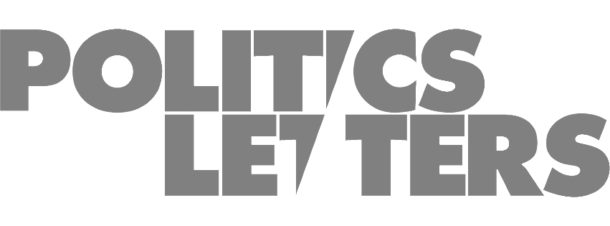By JAMES LIVINGSTON
 1) Socialism is not the exclusive property of “the” working class, whatever the fuck that means these days, or meant a hundred years ago. In history, as against theory, it’s a cross-class construction, just like capitalism, feudalism, or any other mode of production.
1) Socialism is not the exclusive property of “the” working class, whatever the fuck that means these days, or meant a hundred years ago. In history, as against theory, it’s a cross-class construction, just like capitalism, feudalism, or any other mode of production.
(2) Socialism is not the exclusive property of movements or political parties that announce their socialist intentions. Capitalism was not created by revolutions led by avowed capitalists. For example, Lincoln despised capitalists, but the 2nd American Revolution he led created the new industrial colossus of the West. Instead, or in addition, a mode of production, say, socialism, resides in the silence of lived social relations of production, and so it contains elements, traces, institutions, values, and ideas from its predecessors (and its impending successors). Think of how capitalism was contaminated by feudalism–or of how capitalism is modulated by socialist ideals and imperatives. Or of how socialist systems that obliterated markets failed.
(3) Like capitalism, socialism has no predictable political form or valence–it can be, and has been, liberal, democratic, authoritarian, progressive, regressive, emancipatory, or murderous. Fascism and communism in the 20th century were variations on the theme of socialism. So were the regulatory experiments we associate with the Progressive Era and the New Deal.
That’s what socialism isn’t. Tomorrow maybe I announce what it is.
[FB conversation:]
Bhaskar claims that my argument about socialism is old (Crosland) and not worth rehashing, to which I have 3 replies. First, what the fuck are you talking about? Second, you’re wrong. Third (is this where I get to say basically?), I don’t want to reenact Trotsky in 1917.
Here’s the comment he left, now preserved for posterity:
“This is basically a rehash of arguments put forward decades ago. I’m no fan of reenacting Trotsky 1917, but why is talking Crosland 1956 any more relevant?”
Bhaskar apparently believes that my argument can be reduced to Crosland’s question of whether ownership or control is more important in thinking through the matter of socialism. He must have been reading the replies to my link from Forbes rather than my more recent posts under the title of How To Talk About Socialism. Thus: what the fuck are you talking about?
Bhaskar also believes that an argument from 1956 is not worth revisiting. He may be right about Crosland, I don’t much care either way, but he’s wrong about the relevance of a debate about the meaning of socialism in the here and now. He may have decided that ownership of the means of production is the only question worth asking. The rest of us might disagree.
Bhaskar believes, apparently, that Trotsky in 1917 has something to do with what I wrote. I do not share this belief because I know something about what Trotsky did in 1917, and so would never want to reenact it, not one minute of it.
How To Think About Socialism: A Primer (cont’d.)
(4) Markets, commodities (and yes, fetishism), money, prices, credit, consumer choice . . . are essential ingredients of democratic socialism, because their existence preserves the essential principle of modern liberalism, viz., the supremacy of society over the state. As translated by Hegel, Marx, and Bernstein, this meant that the site of self-discovery and self-determination was civil society, not citizenship in the classical, republican sense. As translated by the American revolutionaries and their intellectual descendants here and in Eastern Europe, ca. 1956-1992, it meant the sovereignty of the people, not the party, the state, or the government.
(5) Like capitalism in the 19 century, 20th-century socialism developed in an “extensive” fashion, driven by investment in heavy industries or capital goods (Department I in Marx’s two-sector reproductive schemes). This extensive model was perfectly consistent with state-centered planning. By the mid-20th century, economists in Poland (Brus), Czechoslovakia (Selucky) and Hungary (Friss) noticed, however, that the advanced capitalist societies had somehow shifted–without a Plan–to an “intensive” model of growth and development, which made consumer demand the driving force. Investment in capital goods now followed this demand curve, whereas in the extensive model, it had determined the scope and shape of consumer demand.
Brus, who was trained by Lange and Kalecki, led the way. In 1961, he argued that the Soviet Bloc had to make this same transition to an intensive model if it was not to stagnate and fall behind the West. In other words, consumer choice, which presupposed markets and prices uncontrolled by planners, would have to supplement and eventually supplant The Plan. Brus came right out and said that the corollary of this transition, commodity fetishism, was good for socialism. He was right.
[Some of my FB interlocutors have suggested that socialism in its almost infinite variety in the 20th century was a product of struggle, even revolution, unlike, as they would have it, capitalism. As I understand them, they suggest that capitalism emerged and evolved–it never took much political trouble. It certainly didn’t require social movements, intellectual cadres, dedicated political parties and all that.
Sure, Barrington Moore, Jr., called the American Civil War the Last Capitalist Revolution, in a beautiful variation on the theme of a 2nd American Revolution. David Brion Davis played the same tune at the same historiographical moment. But did any abolitionist, free soiler, or Republican Party (b. 1854) member in the 1850s and 60s know they were inventing industrial capitalism by destroying slavery? Hell, no.
Did any member of the Long Parliament know that regicide would lead to the 19th century holocaust of industrialization and imperialism—what we know as modern capitalism? Hell, no.
But now turn this theme of unintended consequences around. Did the capitalists who devised the corporation as a legal solution to the economic crisis of the late-19th century know that they were sentencing themselves to social death? Do we think that capitalism is present only when and where hired shills say it’s so? Or do we always look deeper, into the social relations of goods production?]
(6) Like capitalism, socialism resides in and flows from these lived social relations, not just in party programs or government legislation or urgent rhetoric. In this sense, absent a socialist party or a strong labor movement or a vibrant Left, socialism abides, even, or especially, in the benighted USA. But the socialization of private property and investment—the essence of socialism, by my accounting—does not necessarily take a democratic shape. Which is what I mean when I say that, like capitalism, socialism has no predictable political valence.
(7) We have already socialized capital in and through the corporate form. That is, we have separated ownership and control, the same thing as sentencing capitalists to social death. Their predecessors, the landed nobility of England, similarly sentenced themselves when confronted with their social crisis, ca. 1350-1550, handing over control of everyday economic decisions to rent-paying commoners who would one day be known as the conquering bourgeoisie. Those commoners always deferred to their aristocratic betters, or, what is the same thing, tried to imitate them. Like them, we have already decided, willy-nilly, on a different mode of production, socialism, but it’s a corporate, oligarchic kind. We too imitate our betters.
(8) Believe it or not, Marx predicted—or rather, observed and recorded—this very stage of development, in volume 3 of Capital (see, in particular, chapters 23, 27, 29-32). I’m barely a Marxist anymore, but you have to give the man, uh, credit, where credit is due. Here in volume 3, which is actually the back story for volume 1, he painstakingly demonstrated two propositions. First, the convergence of modern corporations and modern credit signified “the abolition of capital as private property within the boundaries of capitalist production itself.” Yeah, he said that, p. 516 in the Kerr edition, chapter 27.
Second, the comparative frame of reference needed to grasp the magnitude of this moment was the transition from feudalism to capitalism. In other words, toward the end of the 19th century, another transition to a socialized mode of production was already underway.
“Stock companies in general, developed with the credit system, have a tendency to separate this labor of management as a function more and more from the ownership of capital, whether it be self-owned or borrowed. In the same way the development of bourgeois society separate[d] the functions of judges and administrators from feudal property, whose prerogative they were in feudal times.
“Since the mere owner of capital, the money-capitalist, has to face the investing capitalist, while money-capital itself assumes a social character with the advance of credit, being concentrated in banks and loaned by them instead of by it original owner, and since, on the other hand, the mere manager, who has no title to the capital whatever, whether by borrowing or otherwise, performs all real functions pertaining to the investing capitalist as such, only the functionary remains and the capitalist disappears from the process of production as a superfluous person.” (Kerr ed. p. 456, chapter 23)
(9) Like I said, it’s the social death of capitalists, accomplished by their own creation, the corporation. The “necessary transition.” But that lurching, spastic, unconscious, unintended movement toward a “socialized” mode of production has a price—and, having lived through the Great Recession, we know what it is:
“This [modern corporation + modern credit] is the abolition of the capitalist mode of production within capitalist production itself, a self-destructive contradiction, which represents on its face a mere phase of transition to a new form of production. . . . It reproduces a new aristocracy of finance, a new sort of parasite in the shape of promoters, speculators and merely nominal directors; a whole system of swindling and cheating by means of corporation juggling, stock jobbing, and stock speculation. It is private production without the control of private property.” (Kerr ed. p. 519, chapter 27)
(11) If I’m right to insist that socialism is, like capitalism, a cross-class construction rather than the exclusive property of “the” working class, a redistributive logic—control over rather than ownership of the means of production—must be its animating principle. Our aim is the socialization, not the expropriation, of property, and our method, to begin with, is the redistribution of income, in accordance with an “intensive,” consumer-driven model of economic growth.
The premise here is Kenneth Burke’s, as he put it in 1935, at the American Writers Congress sponsored by the Communist Party USA: “There are few people who really want to work, let us say, as a human cog in an automobile factory, or as gatherers of vegetables on a big truck farm. Such rigorous ways of life enlist our sympathies, but not our ambitions. Our ideal is as far as possible to eliminate such kinds of work, or to reduce its strenuousness to a minimum.”
Notice that in these Marxist terms, American workers who identify as “middle class” aren’t suffering from false consciousness—they’re not “prisoners of the American dream,” as the fatuous Mike Davis and his enablers at New Left Review like to think, and as most leftists still seem to believe. These workers are eminently rational beings who refuse to be defined by their occupations or their economic functions, who don’t want Davis’s intellectual condescension, and who don’t need anyone’s political representation.
But, as I’ve repeatedly said, the socialization of property can happen and has happened, in the absence of social democracy—under the regime of the corporation, recently endowed by the Supreme Court with the legal standing of a citizen, not merely a person. How, then, to imagine and install democratic socialism if, in our political maturity or intellectual dotage, take your pick, we exclude insurrection and the overthrow of the state as our goals?
Taxation. I know, it’s nowhere near as romantic as the barricades. But it’s our best bet. We don’t need workers’ cooperatives or government ownership. We need redistribution. This is not a utopian vision. As I’ve pointed out on many occasions, transfer payments or “entitlements” have been the fastest-growing components of household income since 1959. By 2000, they composed 20% of all household income.
The Republican Party stands athwart this process, which it rightly recognizes as the entering wedge of socialism. To the precise extent that the Left insists on the ontology of “the” working class, or on workplace democracy, or on “full employment,” it does, too.
Here is one of my favorite writers addressing the relevant issues.
“The prevalent theory in America during the last century was that taxation was to be levied for the sole purpose of raising government revenues. It should therefore be as little as possible, and should be divided among the people according to their ability to pay. In other words, it should leave all citizens in the same relative position as it found them.
“We are now going over more completely to a conception of taxation as an instrument for the socialization of production and wealth; as a means of changing the currents and direction of distribution. In other words, the social, as well as the merely fiscal, ends of taxation are held in view.”
That’s Walter Weyl from The New Democracy, published in 1912.
A clarification of Thesis 11. Redistribution by means of taxation as the method of social democracy doesn’t sound very romantic or revolutionary, or even interesting. It would be more fun–and I suppose more strenuously masculine–to be more radical, more insurrectionary. You know, let’s blow the goddamn thing up. But look at it this way. Walter Weyl, whom I quote below, was right to suggest in 1912 (before the Federal Reserve and the IRS were in place) that taxation always has social as well as fiscal purposes. He cited tariffs that protected certain industries and promoted manufacturing in general. In our own time, we could cite almost any fiscal device, from trade policy to the earned income credit, to the same effect.
The question is not whether tax policies have market effects and social ends, but which ones we endorse and enact. After all, it was Alan Greenspan–yeah, him–who said this in his 2007 autobiography: “Remember, markets are not ends in themselves. They are constructs to assist populations in achieving the optimum allocation of resources.” We regulate and manipulate markets or they regulate and manipulate us.
But here’s the bottom line, where social democracy begins to look like fun, if not all radical and insurrectionary. You can’t get there unless you decouple income from work. So, fuck “full employment” and all its ugly connotations, including the idiotic notion that there is some legible, transparent, or justifiable relation between effort and reward in this labor market, or any other. Fuck work.
When we grasp this implication of social democracy as I have here explained it, we can begin to understand why Keynes, Kalecki, Taylor, Lange, Brus, and Selucky (not to mention their antecedents in the Americas) are so crucial to thinking our way past the grisly realities of contemporary capitalism.
Maybe we can also begin to relax, already.






No Comments